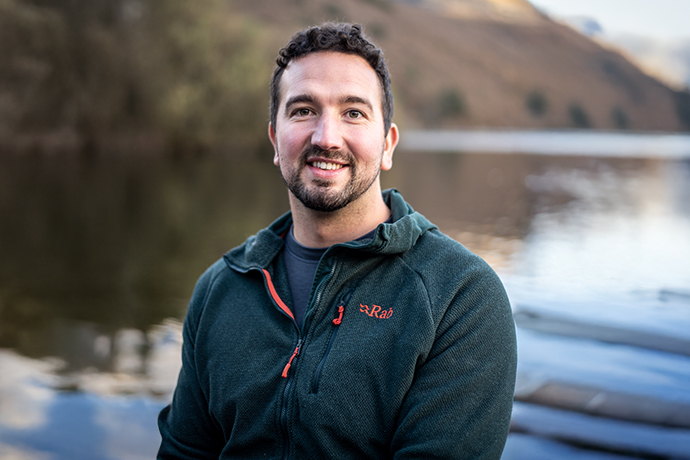 SPEAKERS
SPEAKERS
 TOPICS
TOPICS
Discover how Darren Edwards transforms teams through resilience keynotes and motivational leadership techniques that drive success under challenging circumstances.

High-pressure situations can make or break a team's performance. When deadlines loom and stakes are high, some teams crumble whilst others flourish. The difference often lies in leadership that knows how to inspire confidence and maintain focus during challenging moments.
Understanding how teams respond to pressure requires examining the fundamental dynamics that drive collective performance. Every organisation faces moments when external demands exceed comfortable capacity levels. These situations reveal the true strength of your team's foundation and leadership structure.
The most successful teams don't simply endure pressure; they transform it into fuel for exceptional achievement. This transformation occurs when leaders create environments where challenge becomes synonymous with opportunity.
Pressure affects everyone differently, but teams need consistent strategies to maintain peak performance. Effective leaders understand that stress can either paralyse or energise their workforce. The key lies in reframing challenges as opportunities for growth rather than threats to success.
When teams view pressure situations through a positive lens, they develop resilience naturally. This mindset shift requires deliberate cultivation and expert guidance. Leaders must model the behaviour they want to see, demonstrating calm determination when circumstances become difficult.
Research shows that teams perform better under pressure when they have clear objectives and trust their leadership. This foundation allows individuals to focus on solutions rather than dwelling on potential problems. The result is enhanced creativity and improved problem-solving capabilities.
Understanding individual stress responses within the team enables leaders to provide targeted support. Some people thrive in high-pressure environments, whilst others need additional reassurance and structure. Recognising these differences allows for more effective team management during critical moments.
A resilience keynote can transform how your organisation approaches challenging situations. These presentations provide practical frameworks that teams can implement immediately. The focus shifts from surviving pressure to thriving within it, creating sustainable performance improvements.
Resilience building starts with understanding that setbacks are temporary learning opportunities. Teams must develop mental flexibility to recover quickly from failures. This psychological agility prevents small problems from escalating into major crises that could derail entire projects.
Key elements of resilient teams include:
Building resilience requires consistent practice through controlled challenges and simulated pressure scenarios. Teams need opportunities to test their capabilities in safe environments before facing real crises. This preparation builds confidence and refines response strategies.
Darren Edwards specialises in helping organisations develop these crucial capabilities. His approach combines practical strategies with inspirational messaging that resonates with diverse audiences.

Motivational leadership becomes crucial when teams face their biggest challenges. Leaders must balance empathy with determination, providing support whilst maintaining high standards. This delicate equilibrium requires skill, experience, and genuine commitment to team development.
The most effective leaders during pressure situations focus on solutions rather than problems. They encourage innovation, celebrate small wins, and maintain perspective on long-term objectives. This approach helps teams stay motivated even when immediate results seem elusive.
Transformational leaders distinguish themselves by creating environments where pressure becomes a catalyst for excellence. They recognize that their emotional state has a direct impact on team performance. When leaders remain calm and composed, their teams mirror this stability naturally.
An overcoming adversity speaker can offer valuable insights into leadership during challenging times. These professionals share proven strategies that have helped countless organisations navigate challenging circumstances successfully. Their expertise comes from real-world experience and a deep understanding of human psychology.
Effective pressure management begins with establishing clear communication protocols before stressful situations arise. Teams should designate specific channels for urgent updates and ensure everyone understands their role during crisis periods. This preparation prevents confusion when time becomes critical.
Time management techniques become particularly valuable during high-pressure scenarios. Breaking large tasks into smaller, manageable components helps teams maintain momentum whilst avoiding overwhelm. Regular progress reviews allow for quick adjustments and keep everyone aligned on priorities.
A Darren Edwards speaker session typically includes actionable strategies that teams can implement immediately. The focus remains on practical application rather than theoretical concepts. This approach ensures participants leave with tools they can use in their daily work environment.
Many conference speakers focus purely on motivation without providing substance. The most effective presentations combine inspiration with education, providing audiences with both the desire and the ability to implement positive changes.
Regular training sessions help embed these principles throughout your organisation. Teams that practice pressure management techniques regularly perform better when real challenges arise. This preparation creates confidence and competence that translates into measurable business results.
Organisations must track their progress in developing pressure-resistant teams. Key performance indicators might include project completion rates, employee satisfaction scores, and customer feedback during challenging periods. These metrics provide objective evidence of improvement.
Effective measurement systems should capture both quantitative and qualitative data about team performance. Regular pulse surveys can reveal how team members feel about their ability to cope with demanding situations. These insights enable leaders to identify areas that require additional focus or support.
Regular feedback sessions allow team members to share their experiences and suggest improvements to existing processes. This collaborative approach ensures that measurement systems remain relevant and responsive to changing organisational needs and market conditions.
Teams that receive expert guidance typically exhibit significant improvements in their ability to manage stress. Darren Edwards has helped numerous organisations transform their approach to pressure situations, creating lasting positive change through targeted interventions and ongoing support.
Investing in pressure performance training generates returns through improved productivity, reduced staff turnover, and an enhanced reputation. Teams that consistently deliver under pressure become valuable competitive advantages in demanding markets.
Long-term success requires embedding measurement processes into regular business operations rather than treating them as separate initiatives. This integration ensures continuous monitoring becomes part of organisational culture, supporting sustained improvement in pressure performance capabilities.